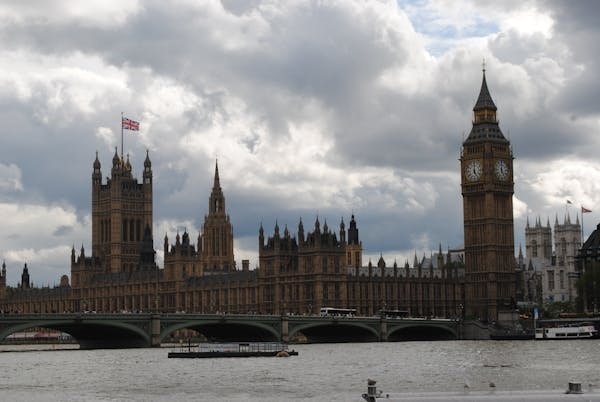The UK’s Chancellor of the Exchequer Rachel Reeves today said that a spending audit had revealed a £22billion black hole in the public finances for 2024/25, ascribing it to unfunded commitments for the current tax year. Reeves set out some spending cuts to immediately narrow the ‘overspend gap’ with in-year savings, says Gary Smith, Financial Planning Partner at wealth management firm Evelyn Partners.
But as the chancellor said these do not cover the whole shortfall, she warned that there would be further tough decisions on tax and spending at an Autumn Budget and Spending Review set for 30 October, while reiterating pledges made in the manifesto.
Reeves repeated her commitment not to increase ‘taxes on working people’ at the Budget: ‘That means we will not increase national insurance, the basic, higher or additional rates of income tax or VAT.’
Smith said: “Whether or not there has been sleight of hand from either side in this row over the public finances and fiscal intentions, we should probably expect the Chancellor to announce tax rises in some form in October, even if this was not explicitly broached today.
“Some think the Chancellor will “get it all over with” with tax rises, which can at the moment be blamed on the fiscal inheritance and be at least partially forgotten by the time of the next election. Others think she will go softly and test the water with some moderate measures.
“The issue is that none of the “wealth taxes” – capital gains tax, inheritance tax and the tax benefits around pensions – that remain on the table for the Chancellor are huge revenue raisers on their own, at least not without major reform.
“Capital gains tax has featured in a lot of speculation but it’s unlikely that a change to the rate would be announced in October, to come in next April, as that would spark an exit from assets in the intervening periods as investors rushed to bring forward disposals to take advantage of the current rate.
“Also any major cuts to pension tax relief could affect the public sector defined benefit pensions schemes that the new Government will be keen to protect.”
Here are some of the possible revenue-raising measures that the Chancellor could look towards.
Pension tax relief
Smith said: “Rachel Reeves would not be the first Chancellor to cast an eye over the cost to the Treasury of pension tax relief.”
The net cost of pension tax relief to the Treasury was £48.3billion for 2021/22. Estimates from the Institute for Fiscal Studies suggest imposing a flat rate of 30% for everyone could generate £2.7-£3.0billion annually.
Smith adds: ‘The nuclear option would be to scrap higher and additional rate pension tax relief and equalise down to the basic rate of 20 per cent for everyone but this does seem very unlikely. Even equalising it at 30 per cent would be a huge project and quite controversial, but at least it can be sold as benefitting lower earners as basic-rate taxpayers would receive a bigger uplift to their contributions.
‘It would mean many savers are “double-taxed” on both contributions and income when they access their savings, it would be problematic for public sector defined benefit schemes and would also involve taking a spanner to private sector net pay and salary sacrifice schemes.
‘A flat rate of 30 per cent might give a modest boost to the pension savings of basic rate taxpayers but let’s not forget that millions of today’s basic rate taxpayers are the higher and additional rate taxpayers of the future. As millions of workers are being drawn into higher tax bands by frozen income tax thresholds, such a step would remove the one remaining sweetener of this stealth tax rise.
‘When study after study shows that people aren’t saving enough for their retirements, it seems a dangerous step to mess with tax incentives for doing so.
‘Savers might be able to seek a higher growth rate for their investments to compensate if their savings receive less of a boost from the Government, but it’s more likely that they will have to increase their contributions, or revise their plans – whether that is working for longer or settling for a tighter budget in retirement.
‘Diluting pension tax relief would make ISAs even more important for retirement planning, particularly as they can be used to help to supplement withdrawals from pension pots so that less tax is paid when retirees take pension income.
‘From a systemic point of view, salary sacrifice and other net pay pension contribution systems – as are used for defined benefit schemes in the public sector as well as DC workplace schemes in the private sector – would have to undergo surgery, increasing the administration burden for pension providers and employers.
‘Any attempt to shield the public sector from tax relief cuts would be open to harsh criticism when you think that those defined benefit schemes already offer more generous benefits than the average private sector scheme.’
Pensions annual allowance
The annual allowance is the amount that a saver can contribute into a pension in a tax year while still benefitting from tax relief. The headline allowance for most savers was increased from £40,000 to £60,000 alongside the removal of the Lifetime Allowance at the March 2023 Budget.
Smith says: ‘It would certainly be easier and less costly administratively for the Chancellor to reduce the annual allowance, back to or below the £40,000 mark, which would restrict the amount of tax relief being claimed by bigger savers.
‘Although without a controversial exemption for the public sector we would be back to square one in terms of the problems the NHS and civil service were experiencing before Jeremy Hunt’s changes, with professionals retiring early as they were breaking these limits and suffering tax charges.
‘Given that the OBR in March 2023 estimated the overall cost of abolishing the LTA and raising the AA at an annual £1.2billion, one wonders how much can be raised in this way.’
The 25% tax-free lump sum and tax treatment of DC pots on death
Smith says: “Labour and certain think-tanks have also long been sceptical of the virtues of the 2015 pension freedoms, which revolutionised the rules around accessing and using pension savings.
“The main bug-bear seems to be the 25 tax-free lump sum, which the IFS reckons comes at a cost of £5.5billion. This popular benefit is capped at £268,275 thanks to the new Lump Sum Allowance and an attempt to restrict it further would come in for some criticism as the Government would be accused of moving the goalposts again on pensions.
“Many retirees use it to pay off their mortgage which will be an increasingly pressing issue as middle-aged homeowners wrestle with more expensive properties, higher mortgage rates and longer loan terms.
“The PCLS is for many savers the major benefit that keeps them committed to building up a private pension and watering it down would damage the appeal of saving and the credibility of the pension system.”
Think-tanks have also been calling for defined contribution pension pots to be brought into the remit of inheritance tax, and for charging income tax on beneficiaries who draw on a pot that is inherited when the saver dies before age 75.
Smith added: “On the face of it, it can seem an anomaly that DC pension pots are exempt from IHT, but the tax and pension system is made up of a lot of checks and balances, reliefs and penalties that the authorities have over time decided compensate for each other in some way or other.
“Against a background of frozen IHT thresholds, rising IHT bills and quite a high rate of IHT at 40%, defined contribution pension pots being exempted from the taxable estate could be seen as a quid pro quo.”
Inheritance tax
Smith says: “With the baby boomer generation now hitting their sixties and seventies, the temptation for successive Governments will be to tap into it by taxing the “great wealth transfer” to plug gaps in the public finances. The first Budget from a Labour Chancellor in 14 and a half years will be closely watched for any review into IHT reliefs.
‘The sole mention of inheritance in Labour’s manifesto regarded the use of offshore trusts for non-doms – but senior Labour figures have previously made it clear they think some inheritance tax exemptions and allowances are too generous. Apart from the IHT-exempt status of defined contribution (or money purchase) pension pots, the other major talking point on IHT is around business and agricultural property reliefs.
‘There are legitimate reasons behind these reliefs, which help family and rural businesses to remain intact and going concerns on the death of owner, thereby savings jobs and assets of community value. Even criticism that focuses on the use of business relief to protect AIM shares holdings must take into account that it’s there to encourage private investment in small British firms – something that is sadly in short supply in the UK economy at the moment.’
Capital gains tax
Smith said: “Within Labour there are advocates for raising capital gains tax, and even aligning it with income tax rates, but the leadership have said there are no plans to do so. Any move in that direction would probably be kept under wraps, with little notice given before new rates came into force, because the prospect of higher CGT rates will see many investors dispose of assets in mitigation.
“So, if this is on the Chancellor’s agenda, could it be one for April rather than October?
“Arguments that investors benefit from lower rates of capital gains tax than those who pay income tax on earnings miss a crucial point: investing is different to having a paid job. It involves deploying capital and taking risks, and that has historically been the rationale behind lower rates of CGT than income tax.
“Higher CGT rates – on top of the recent shrinking of the annual CGT allowance – tend to distort, and in some cases deter, investment as investors either hold onto unprofitable assets, or dispose of profitable ones, in response to changing rates of taxation. There is also evidence to show that higher CGT rates would reduce the amount taken in revenues in the short to medium term, rather than being a positive for the Treasury.
“This is probably the one area of uncertainty where we have had most enquiries from clients, and some who are most concerned about a possible CGT hike have been looking to dispose of assets – although in most cases this is bringing forward disposals that were already on the cards in the next year or two.”




